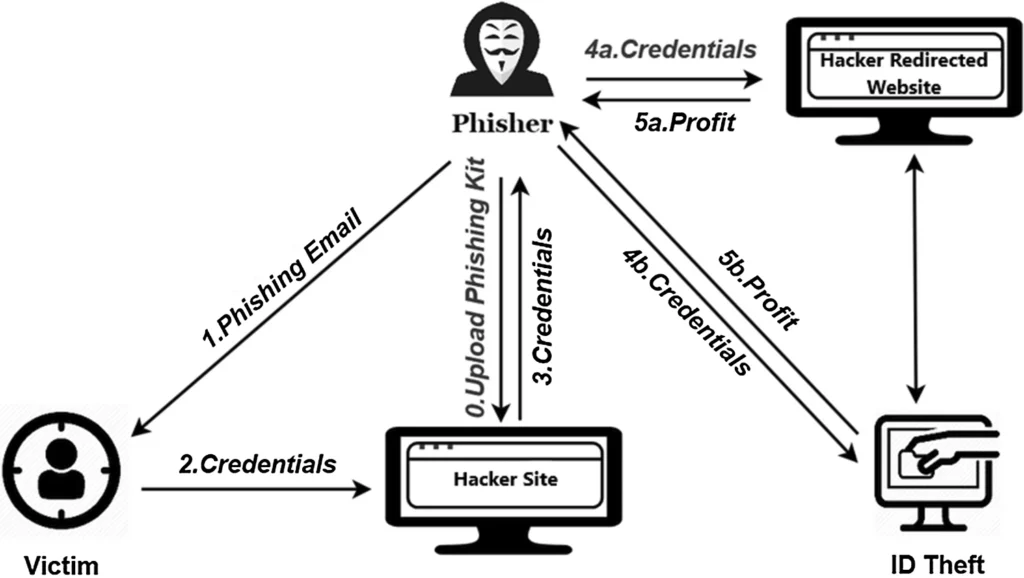Since its release, ChatGPT has been a hot topic, with more and more people growing to like it. Among the people who are enjoying the advantages of this AI tool are online scammers.
Hackers use ChatGPT's popularity to trick users into downloading malware and stealing their personal information, making it a hotbed for phishing scams.
Luckily, users can avoid falling prey to these scams and keep their data safe and secure by just being more security aware. Read on to learn how scammers mimic ChatGPT to steal your credentials and how to prevent it.
What is ChatGPT?
ChatGPT is an AI chatbot developed by OpenAI as part of the Generative Pre-trained Transformer (GPT) family of AI models.
Designed to generate normal responses to language prompts, ChatGPT uses its deep learning algorithms to generate human-like text and responds to complex questions in a conversational manner.
Using a dataset of over 45 terabytes of text data from the internet and a combination of learning techniques, OpenAI trained ChatGPT to generate natural-sounding responses. Since then, OpenAI has continued to refine the model, releasing subsequent versions that have increased ChatGPT’s capabilities.
Users simply “chat” with ChatGPT. ChatGPT can be used in various ways, including as a language model for chatbots, a tool for generating text-based content such as articles or news stories, and a research tool.
How Cyber Criminals Are Using ChatGPT

Source: Security Boulevard
While the public reaction to ChatGPT has been generally positive, many IT and cyber professionals are concerned about security, since ChatGPT can be used to generate fake news or impersonate people online.
In response, OpenAI has deployed various measures to promote responsible use of ChatGPT, but online hackers are taking advantage of ChatGPT’s popularity to prey upon unsuspecting users.
Scammers use various tactics to impersonate ChatGPT and trick users into revealing personal and business account information and financial information.
One common scammer tactic is to create fake ChatGPT accounts or chatbots on various online platforms, such as social media sites or messaging apps. Hackers then reach out to users, offering them the services of ChatGPT.
Cyber criminals also use ChatGPT by suggesting that it can help improve business operations, provide financial advice, or even offer a loan. Once the scammer has gained the user’s trust, they will ask the user to provide personal or business account information, such as login credentials or bank account details.
They may also ask for financial information, such as credit card numbers or social security numbers, under the guise of needing it to verify the user’s identity. In reality, the scammer uses this information to gain unauthorized access to the user’s accounts and steal money or sensitive data.
How to Defend Against ChatGPT Scams
Individuals and organizations can protect themselves from these types of scams by using caution when sharing personal information online.
Two ways to do this are by verifying the authenticity of a ChatGPT account or chatbot before providing sensitive information and by verifying the legitimacy of any service or platform a scammer directs them to before making any payments.
Cyber criminals use phishing emails or messages to contact an individual to request sensitive personal information. A scammer can use ChatGPT to provide a link that will lead to a request for information, but any information shared will go directly to the cyber criminal behind the scheme. Here are more ways to protect your organization against ChatGPT scams.
- Update your defenses. It's essential for businesses to keep their anti-malware software up to date and scan their systems regularly for potential threats. You should also want to put firewalls in place and make sure that any sensitive data stored on your systems is encrypted.
- Be vigilant. Do not click any links sent through ChatGPT profiles, especially if you are asked to click immediately or enter your personal information.
- Stay updated. As more scammers turn to ChatGPT, the threats they pose will continue to evolve. Protect yourself by paying attention to the latest cyber security news and reports.
- Keep data secure. If your organization uses ChatGPT, ensure that access is limited to those people who need it to do their jobs.
- Educate employees. To ensure that employees aren't falling for fake chatbots, train them how to identify phishing scams and learn the protocols in place for reporting any suspicious emails or messages.
It's Not All Bad News: Using AI for Good
Cyber security threats like scams and phishing attacks are a growing concern in our increasingly digitized world. As AI-powered technologies like ChatGPT continue to gain popularity, it's essential for individuals and organizations to stay vigilant and take proactive measures to protect themselves from these types of threats.
Fortunately, awareness of the potential risks of interacting with AI-powered chatbots is growing, and many organizations are taking steps to protect themselves online. If used properly, AI can even offer strong protection against cyber attacks, helping you identify malicious activity quickly and scanning for vulnerabilities faster than any human.
![]()
Cyber Security Hub: Access Exclusive Cyber Security Content
To learn more about ChatGPT and how to protect your organization against AI-powered threats, visit our CyberHub.